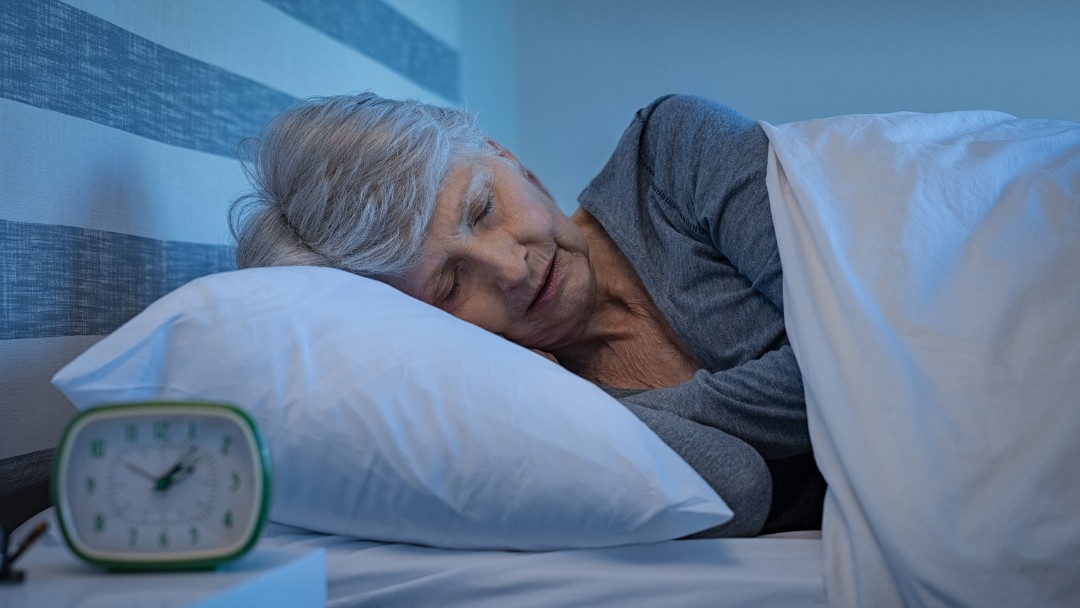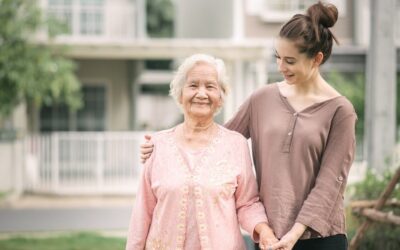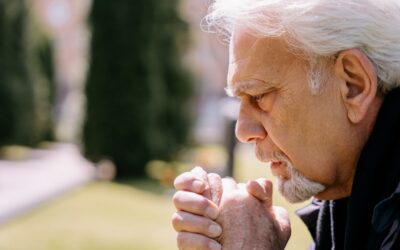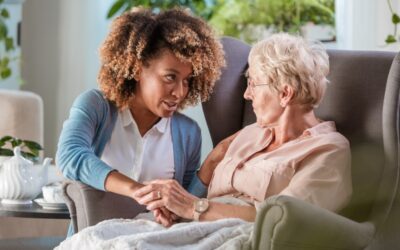Caring for an aging loved one means balancing compassion, patience, and practical support especially when it comes to maintaining daily routines and nighttime comfort. Many families in the Northern California Bay Area reach out to us with questions about how to support good hygiene habits, recognize common health challenges, and ease anxiety in elderly at night.
Our experienced caregivers at All Seasons Homecare understand that even small changes in routine can make a big difference. In this article, we’re sharing expert insight into building a dignified hygiene routine, spotting early signs of health concerns (and how to screen for them), and using structure and familiarity to bring calm and confidence to seniors as evening approaches.
Helping Seniors with a Hygiene Routine
Good hygiene protects skin, prevents infections, and supports confidence, but it also requires patience, privacy, and the right adaptive setup for many elders. You can try these caregiver-tested steps to make senior hygiene easier and less stressful:
- Create a simple, repeatable checklist. Break bathing, oral care, grooming, and dressing into small, confidence-building tasks. A printed list posted in the bathroom works wonders (and also reduces stress and decision fatigue). For practical tips across bathing frequency, oral hygiene, and safety, see this overview from Senior Lifestyle.
- Adapt the environment. Warm the room, set out supplies in order, and use nonslip mats, shower chairs, and hand-held sprayers to make everything safer and more comfortable.
- Preserve dignity. Always offer choices when possible (ex: morning vs. evening bath, shampoo scent, etc.), use towels for draping, and keep instructions calm and brief.
- Watch skin carefully. Dryness, tears, and pressure sore areas need prompt attention, especially after bathing and toileting.
- Match your level of assistance to need. Some people only need gentle cues while others need more hands-on help. If a loved one resists bathing, try shorter “top-and-tail” routines on off days or switch the time of day to when they’re naturally more relaxed. For more ideas, take a look at this practical hygiene checklist for caregivers.
Our Walnut Creek home care team at All Seasons can design a personalized hygiene plan and provide respectful, trained helpers which are ideal if you’ve been searching for “senior care walnut creek,” “all seasons home care,” or “contra costa senior services.”
Most Common Elderly Health Problems and How to Screen for Them
While every person is unique, certain conditions are common later in life, many of which are detectable early and manageable with the right plan:
- Hypertension, arthritis, high cholesterol, coronary heart disease, diabetes. These things consistently rank among the most prevalent chronic conditions in older adults.
- Other frequent issues: COPD, osteoporosis, cancer, depression, cognitive disorders, and fall risk. Summary data is updated regularly and both the CDC and AARP can provide helpful snapshots with additional information.
Screening and Prevention You Can Act on Now
You can help your elderly loved one use their Medicare Annual Wellness Visit to review common screenings. The U.S. Preventive Services Task Force (USPSTF) publishes screening recommendations with clear ages/intervals (e.g., blood pressure, colorectal cancer, osteoporosis for women ≥65, tobacco cessation counseling, vaccinations).
The CDC also emphasizes keeping up with routine checkups, vaccines, and screenings (vision, hearing, cholesterol, diabetes), especially if there’s a family history. And don’t forget dental cleanings! Gum health is key when it comes to physical health as well.
If you need a second set of eyes to keep track of appointments and reminders, our care managers can help coordinate with physicians and local resources. Just another reason families choose All Seasons Homecare when searching Walnut Creek home care and contra costa senior services!
How Routine Helps Ease Anxiety in Elderly at Night
Many older adults experience heightened worry late in the day which is often called “sundowning” in dementia patients, or generalized restlessness that peaks after dinner. A predictable rhythm when this happens can significantly reduce distress.
Why Routine Calms the Brain
Consistent timing such as meals, medication, activity, and wind-down cues, reduces uncertainty, anchors circadian rhythms, and boosts a sense of control. Mental-health specialists who work with seniors often highlight daily structure as a simple, powerful tool.
Nighttime Strategies for Anxiety in Elderly at Night
- Strengthen circadian cues. Morning light, gentle daytime activity (e.g., regular walks), and reduced long naps can improve sleep pressure and mood.
- Create a soothing evening routine. Dim lights gradually, play calming music, limit caffeine/alcohol after noon, and keep the environment uncluttered. Guidance from dementia experts emphasizes non-drug approaches first.
- Keep tasks predictable. Aim for the same dinner, bath, and bedtime window each day; try using a visual schedule to cue “what’s next.”
- Provide reassurance and safety. Validate your loved one’s feelings (even if they seem illogical or silly) avoid arguing if someone is confused, and offer supervised pacing if restlessness sets in.
Our All Seasons caregivers implement calming evening routines, cue medications, and offer companionship to seniors. This practical support can significantly ease anxiety in elderly at night.
Anxiety in Elderly at Night and More Commonly Asked Questions
What are the most common health problems elderly adults face?
Hypertension, arthritis, high cholesterol, heart disease, and diabetes are among the most prevalent, with many older adults living with multiple conditions.
Which screenings should my parent get this year?
Review USPSTF recommendations (in the link above) with your clinician to tailor tests like blood pressure checks, colorectal cancer screening, osteoporosis screening (women ≥65), depression screening, and vaccines.
How can a routine lower my loved one’s evening anxiety?
Consistent daily timing, light exposure, gentle activity, and a calm wind-down period reduce confusion and agitation especially in individuals with dementia.
Where can we get hands-on help?
At All Seasons Homecare, we support families throughout the East Bay with senior hygiene assistance, companionship, and condition-aware care plans… the trusted senior care walnut creek families depend on. Reach out to us for help and support anytime.
Personalized Care for Your Family
Supporting your loved one’s daily routines can make a meaningful difference in their comfort, confidence, and overall well-being—especially when it comes to easing anxiety in elderly at night. If your family could use assistance with bathing, grooming, meal prep, household tasks, or appointment coordination, our compassionate team at All Seasons Homecare is here to help.
Call us today at (925) 363-4900 to learn how our Walnut Creek and North Oakland home care and Contra Costa senior services can be tailored to meet your loved one’s needs and your family’s schedule. Together, we can create a routine that brings peace, dignity, and confidence every day and every night.




